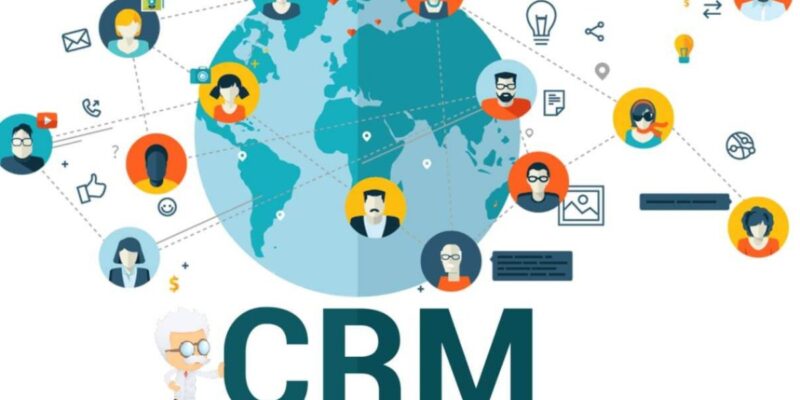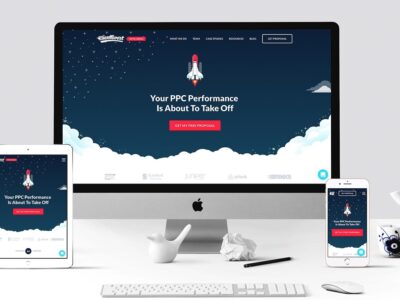Hey there! 👋 I’m Sarah, and I’ve spent the last decade helping businesses find their perfect CRM match. Trust me, I’ve seen it all – from solopreneurs struggling with spreadsheets to enterprises juggling multiple systems. Today, I’m excited to walk you through the best CRM solutions for 2024, helping you find the perfect fit for your business.
What’s New in the CRM World for 2024?
Before we dive into specific solutions, let’s talk about what’s shaping CRM software this year. AI integration has become more sophisticated, automation is smarter than ever, and there’s a growing focus on user experience. We’re seeing CRMs transform from simple contact management tools into comprehensive business growth platforms.
Top CRM Picks for 2024
1. Salesforce – The Enterprise Champion
Best for: Large enterprises and businesses expecting significant scaling
Let’s start with the industry giant. Salesforce continues to dominate the enterprise CRM space, and for good reason. In 2024, they’ve enhanced their AI capabilities with Einstein GPT, making their system even more intelligent.
Pros:
- Incredibly robust and customizable
- Extensive third-party integrations
- Advanced analytics and reporting
- Strong mobile capabilities
- Excellent AI-powered features
Cons:
- Can be expensive for smaller businesses
- Steep learning curve
- Might be overwhelming for simple needs
Pricing: Starting at $25/user/month for Essentials, with premium editions reaching $300+/user/month
2. HubSpot CRM – The All-in-One Marketing Pioneer
Best for: Businesses focused on inbound marketing and sales alignment
If you’re looking for a CRM that seamlessly blends marketing and sales, HubSpot is your go-to choice. Their free tier is genuinely useful, and their paid plans offer incredible value.
Pros:
- Excellent free tier
- User-friendly interface
- Strong marketing automation
- Great content management capabilities
- Comprehensive training resources
Cons:
- Paid plans can get pricey
- Some advanced features only available in higher tiers
- Can be complex to fully utilize all features
Pricing: Free tier available; paid plans start at $45/month for Starter growth suite
3. Zoho CRM – The Value Champion
Best for: Small to medium businesses looking for comprehensive features at a reasonable price
Zoho has really stepped up their game in 2024. Their AI assistant, Zia, now offers more sophisticated insights, and their customization options have expanded.
Pros:
- Excellent value for money
- Strong automation capabilities
- Great integration with other Zoho products
- Customizable modules and fields
- Multi-channel communication
Cons:
- Interface could be more intuitive
- Some features require technical knowledge
- Customer support can be slow
Pricing: Starting at $14/user/month for Standard edition
4. Pipedrive – The Sales Process Specialist
Best for: Sales-focused teams and businesses with clearly defined sales processes
Pipedrive keeps things focused on what matters most – closing deals. Their visual pipeline management is still one of the best in the business.
Pros:
- Intuitive pipeline management
- Easy to use and set up
- Great mobile app
- Strong email integration
- Excellent activity tracking
Cons:
- Limited marketing features
- Basic reporting in lower tiers
- Limited customization options
Pricing: Starting at $14.90/user/month for Essential plan
5. Monday.com CRM – The Visual Workflow Master
Best for: Teams that prefer visual organization and collaborative work
A relatively newer player in the CRM space, Monday.com has made significant strides in 2024 with their CRM offering.
Pros:
- Highly visual interface
- Excellent project management integration
- Flexible customization
- Strong collaboration features
- Intuitive automation builder
Cons:
- Less traditional CRM features
- Can be pricey for larger teams
- Learning curve for complex automations
Pricing: Starting at $10/user/month for Basic plan
How to Choose the Right CRM for Your Business
Choosing a CRM isn’t just about features and price – it’s about finding a solution that fits your business like a glove. Here’s my tried-and-tested framework for making the right choice:
1. Define Your Needs
Start by answering these questions:
- What’s your primary goal? (Sales, marketing, customer service?)
- How many users will need access?
- What’s your budget per user?
- Which tools do you need to integrate with?
- How tech-savvy is your team?
2. Consider Your Growth Plans
Don’t just think about what you need today – consider where you’ll be in 12-24 months. A good CRM should grow with you.
3. Evaluate Technical Requirements
- Do you need on-premises hosting or is cloud-based okay?
- What kind of data security requirements do you have?
- Do you need mobile access?
- What level of customization do you require?
Special Considerations for Different Business Types
For Small Businesses
If you’re running a small business, focus on:
- Easy setup and use
- Cost-effectiveness
- Essential features without overwhelming complexity
- Good customer support
- Scalability options
Recommended picks:
- HubSpot CRM (Free tier to start)
- Zoho CRM
- Pipedrive
For Mid-Size Companies
Look for:
- Advanced automation capabilities
- Customization options
- Robust reporting
- Integration capabilities
- Team collaboration features
Recommended picks:
- Salesforce
- HubSpot Professional
- Monday.com
For Enterprise Organizations
Priority should be on:
- Advanced security features
- Complex workflow automation
- Extensive customization
- Advanced analytics and reporting
- Multi-department coordination
Recommended picks:
- Salesforce Enterprise
- Microsoft Dynamics 365
- SAP Sales Cloud
Implementation Tips for Success
Having helped countless businesses implement CRM systems, here are my top tips for success:
- Start with a Pilot Program
- Choose a small team to test the system
- Gather feedback and adjust accordingly
- Document common issues and solutions
- Invest in Training
- Provide comprehensive initial training
- Create internal documentation
- Assign CRM champions within teams
- Clean Your Data
- Audit existing customer data
- Establish data entry standards
- Create data cleanup protocols
- Set Clear Goals
- Define success metrics
- Establish timeline for implementation
- Create accountability structures
2024 CRM Trends to Watch
As we move through 2024, keep an eye on these emerging trends:
- AI-Powered Insights
- Predictive analytics becoming standard
- Automated data entry and enrichment
- Smart lead scoring and prioritization
- Enhanced Privacy Features
- Better compliance tools
- Improved data protection
- More granular permission settings
- Improved Mobile Capabilities
- Full-featured mobile apps
- Offline access
- Mobile-first design
- Integration-First Approach
- Better API accessibility
- More native integrations
- Simplified connection processes
Common Pitfalls to Avoid
Let’s wrap up with some common mistakes to avoid:
- Overcomplicating Your Setup
- Start simple and add features as needed
- Focus on essential workflows first
- Don’t try to implement everything at once
- Neglecting User Training
- Invest in proper training programs
- Create clear documentation
- Provide ongoing support
- Ignoring Data Quality
- Establish data entry standards
- Regular data cleaning
- Consistent review processes
Final Thoughts
Choosing the right CRM in 2024 isn’t just about picking the most feature-rich or affordable option – it’s about finding the solution that best aligns with your business processes and goals. Remember, the best CRM is the one your team will actually use.
Take time to evaluate your options, use free trials when available, and don’t be afraid to ask tough questions during demos. Your CRM will be the backbone of your customer relationships, so it’s worth investing the time to make the right choice.
Have questions about specific CRM features or need help making a decision? Drop them in the comments below, and I’ll be happy to help! After all, choosing a CRM is a journey, and sometimes it helps to have a guide along the way.















Comments